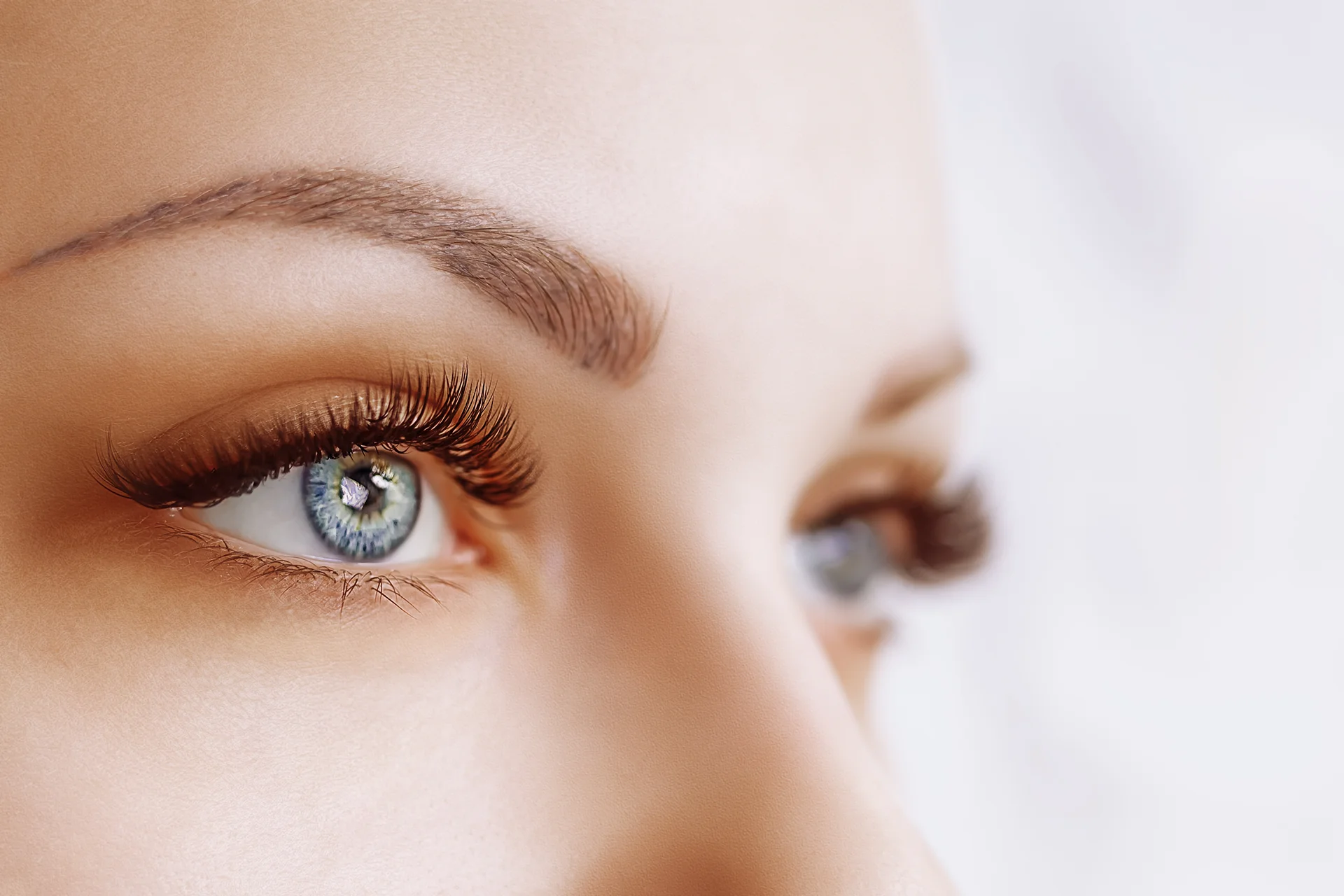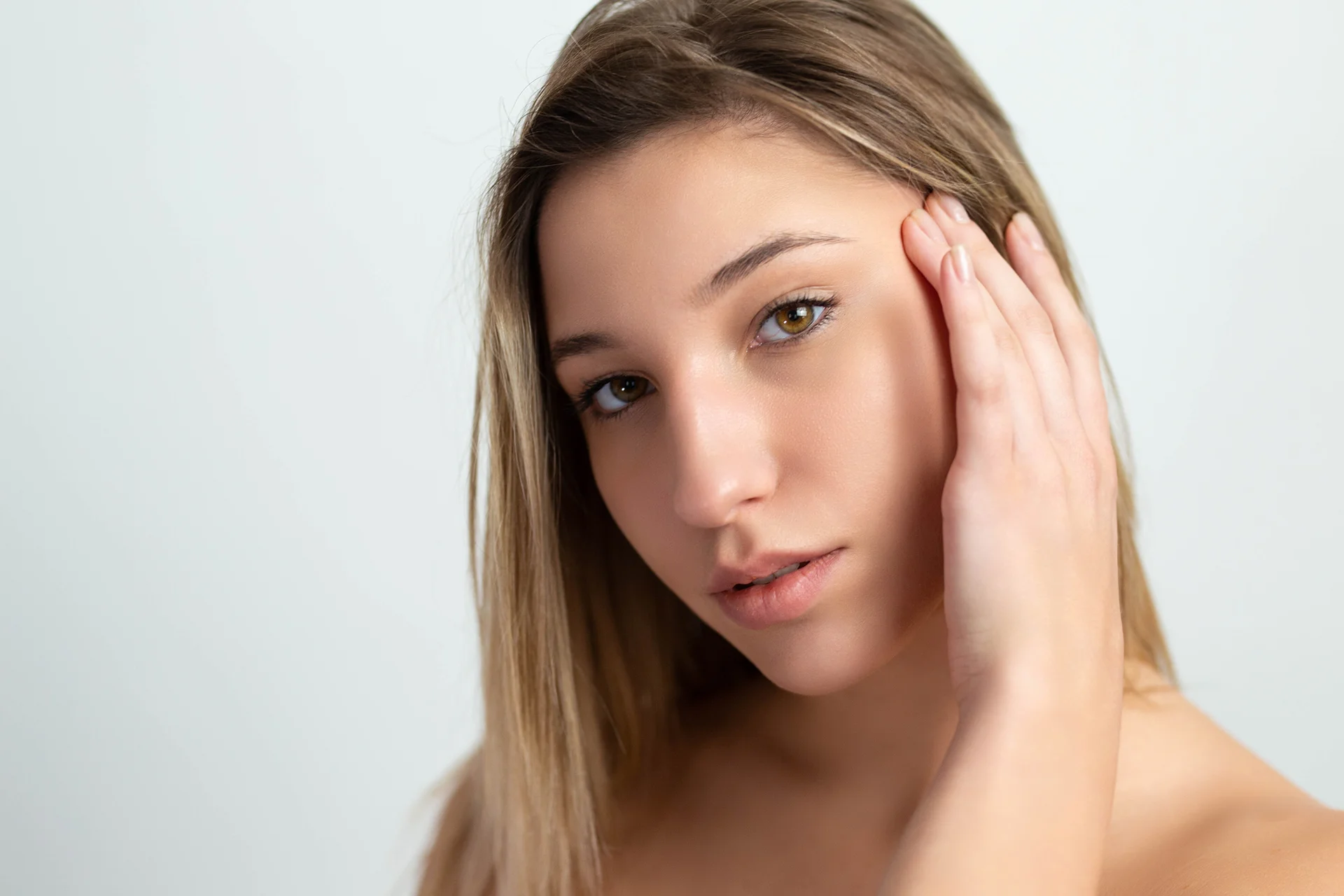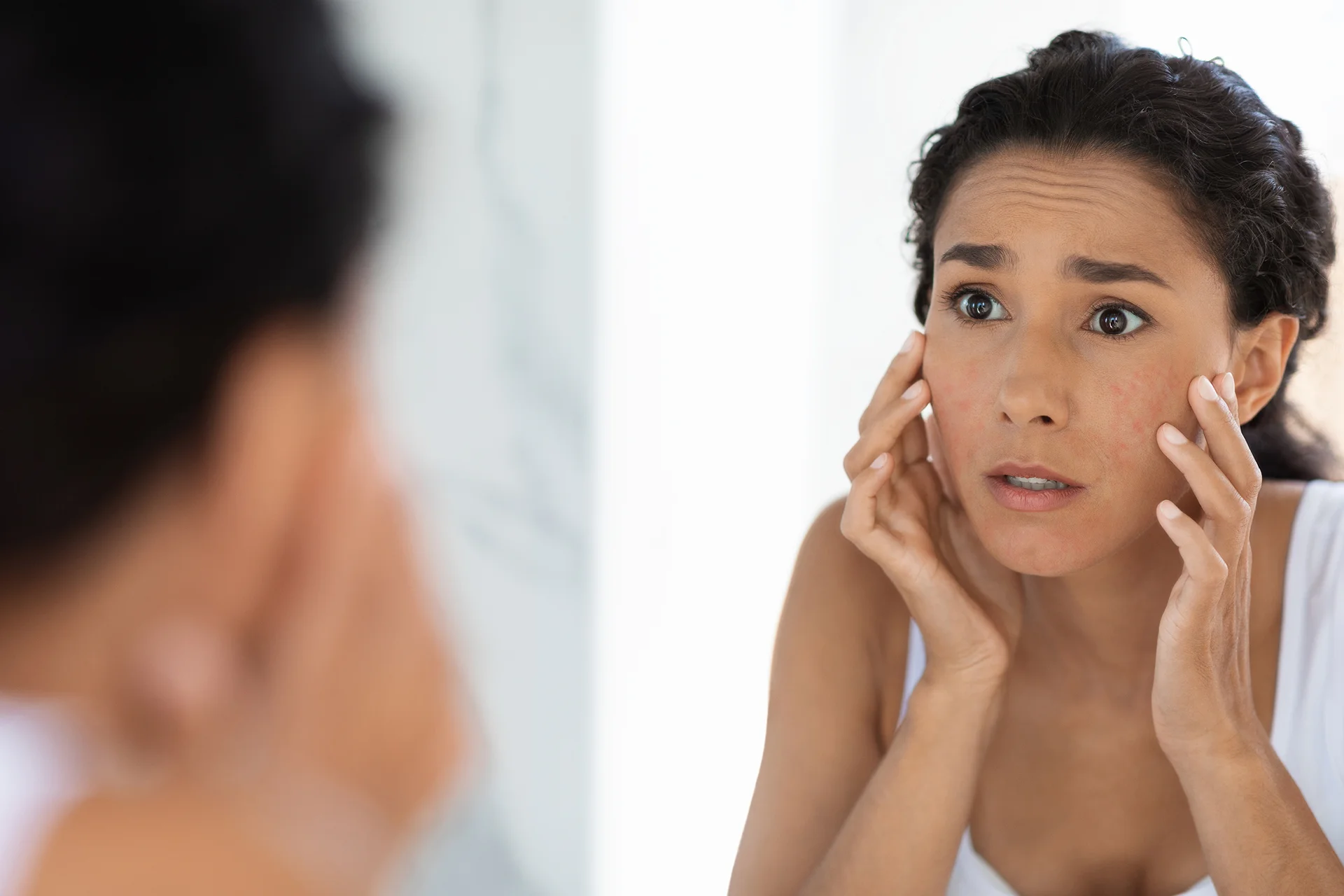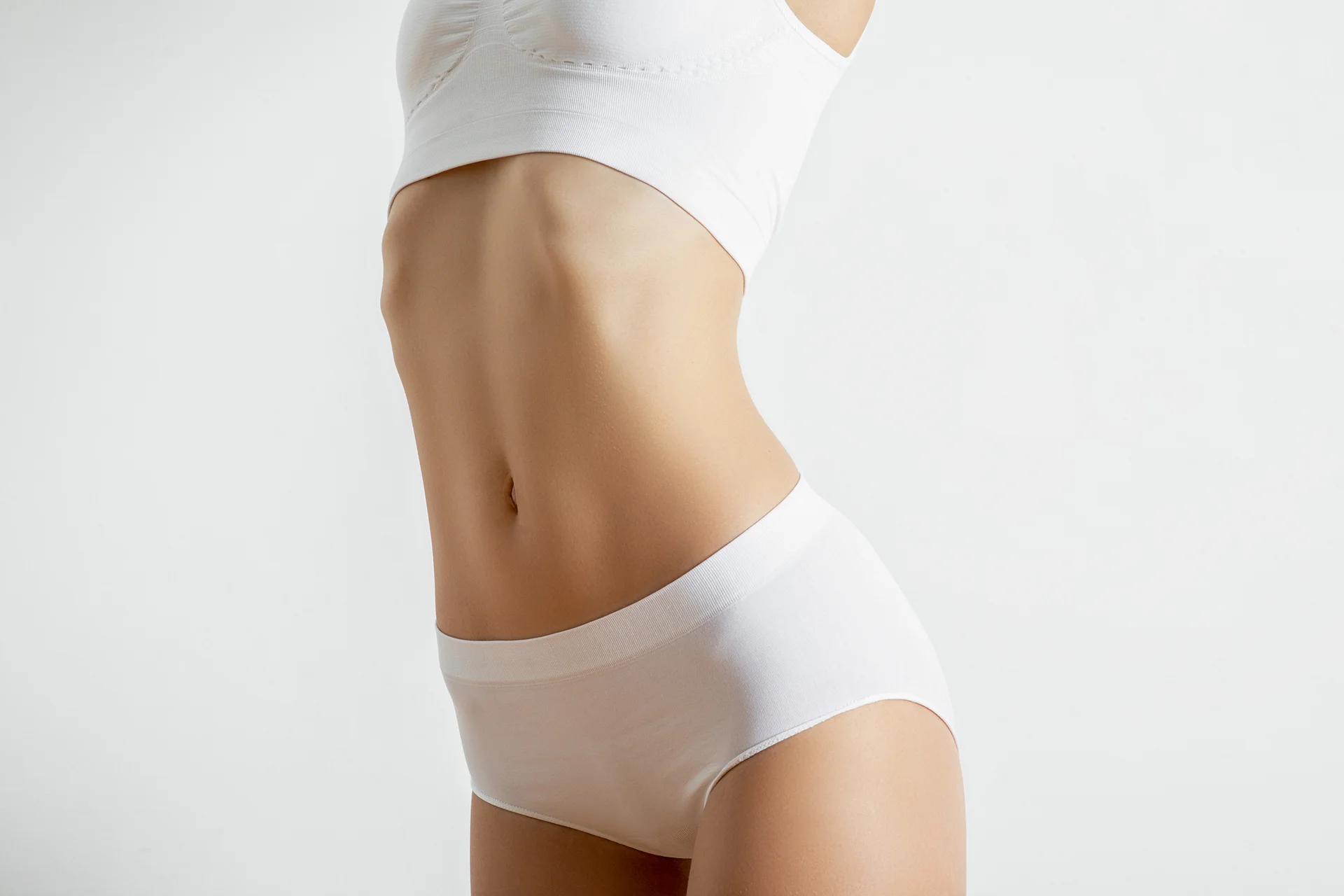Pregnancy is an exciting time, but it also brings many changes to your body. As your belly grows, you may start to notice changes in your skin like stretch marks, melasma, or loosening around the jawline.
While you want to look your best during pregnancy, it’s also crucial to keep your baby safe by avoiding certain beauty treatments. One procedure moms-to-be often wonder about is Morpheus8. Here’s a detailed look at whether or not this is an option for expectant mothers.
What is Morpheus8 and How Does it Work?
Morpheus8 is an advanced micro needling treatment that uses radiofrequency energy to stimulate collagen production and remodel the skin. It utilizes tiny needle tips to create microscopic channels deep in the dermis layer of the skin. These tiny wounds trigger your body’s natural healing response. As part of this process, fibroblasts rush to the area to repair the skin, producing new elastin and collagen fibers.
This influx of collagen plumps the skin, smoothing fine lines and wrinkles. The elastin fibers add firmness and lift. At the same time, the radiofrequency heat provides thermal coagulation, which helps tighten and contour the skin.
Morpheus8 can be used to treat signs of aging on the face and body, such as:
- Fine lines and wrinkles
- Loose, sagging skin
- Scars
- Uneven texture
- Lax tissue under the neck and jawline
- Cellulite
It takes a series of 3-6 sessions spaced 3-4 weeks apart to see optimal results from Morpheus8. Some benefits, like collagen stimulation, continue to improve over the following months too.
Is Morpheus8 Safe During Pregnancy?
Morpheus8 is ultimately an elective cosmetic procedure, not a necessary medical treatment. Since pregnancy already puts your body under some stress, most doctors recommend postponing Morpheus8 and similar treatments until after you have delivered your baby.
There are a few key reasons Morpheus8 is not generally recommended for expecting mothers:
Lack of Research on Safety
Most cosmetic procedures like Morpheus8 have not been specifically tested on pregnant women. Without adequate research, there is no way to confirm its safety. Doctors prefer to err on the side of caution when it comes to the wellbeing of both you and your unborn child.
Pain and Discomfort
Morpheus8 involves piercing the skin repeatedly with very fine needles. This is normally somewhat uncomfortable or painful, even with numbing cream. Pregnant women tend to be especially sensitive to pain. The discomfort could also cause stress responses in the body that may impact the pregnancy.
Skin Sensitivity Risks
Pregnancy hormones like estrogen, progesterone, cortisol and melanocyte-stimulating hormone all fluctuate dramatically throughout pregnancy. This makes the skin more susceptible to sensitivity reactions, redness, pigmentation changes and irritation. Morpheus8 could potentially trigger unpleasant side effects.
Unknown Impacts on Fetal Development
Microneedling with radiofrequency generates heat under the skin, which theoretically could raise the body’s core temperature. It is unclear if or how this could impact the developing baby. Until more research can demonstrate its safety, it is best to avoid Morpheus8 during pregnancy.
Are There Any Alternatives to Morpheus8 While Pregnant?

The good news is there are some gentle alternatives you can consider instead to help address skin concerns like melasma, acne, and loosening skin. Always consult your obstetrician first before using any new skincare products or treatments while pregnant. Some options they may approve include:
Modified Chemical Peels
Light chemical peels containing naturally-derived acids like glycolic acid from sugar cane help exfoliate the surface layers of the skin to reduce discoloration and smooth texture. Chemical peels can potentially be modified to use gentler solutions and application techniques that make them safe for expectant mothers.
Topical Retinoids
Over-the-counter retinoid creams contain vitamin A derivatives that can help treat acne, pigmentation, and signs of aging during pregnancy. Mild OTC formulas may be considered safe, but prescription-strength retinoids require caution and doctor supervision.
Epidermal Growth Factors
Epidermal growth factors are compounds that occur naturally in the skin and help stimulate collagen production. Products containing EGFs may help improve skin elasticity and texture. Always check with your doctor before use while pregnant.
Hydrating Ingredients
Hydrating, nourishing ingredients like glycerin, jojoba oil, aloe vera and hyaluronic acid are generally safe and can help prevent dryness, itching and stretch marks. Look for maternity skin care products containing these types of gentle moisturizing ingredients.
When Can You Get Morpheus8 After Pregnancy?
Morpheus8 is best postponed until at least 3-6 months after delivering your baby. Here are some guidelines on when it may be safe to have the procedure post-pregnancy:
After You Finish Breastfeeding
If you plan to breastfeed, it is a good idea to wait until after you have completely finished nursing your baby before undergoing Morpheus8. The nipple and breast area are common treatment sites, so you’ll want your milk supply to be fully dried up first.
When You Are Done Having Children
If you think you may have more children in the future, it’s best to wait on Morpheus8 until your family is complete. Subsequent pregnancies could potentially impact or reverse your results. Giving your body a chance to fully recover between pregnancies allows you to get the most out of your investment.
After Any Pregnancy-Related Skin Changes Resolve
Pregnancy can cause skin changes like melasma, spider veins, and stretch marks. It’s best to wait until your skin has returned to its baseline, non-pregnant state before getting Morpheus8. This allows your provider to best customize your treatment plan.
With Doctor Clearance
Regardless of timing, always check with your healthcare provider before undergoing Morpheus8 post-pregnancy. They can review your medical history and make sure any pregnancy or delivery complications have fully resolved before giving the green light.
What Results Can You Expect After Morpheus8 Post-Pregnancy?
Once your doctor confirms you are cleared for treatment, Morpheus8 can help reverse many of the aesthetic skin changes associated with pregnancy and childbirth. Typical improvements patients see include:
- Fading of melasma, skin discoloration and pigmentation
- Softening of pregnancy stretch marks on the breasts, abdomen, hips and thighs
- Tightening of loose abdominal skin after pregnancy
- More lifted, youthful contours along the jawline, chin, neck and décolletage
- Smoothing of fine lines and crepey skin texture related to collagen loss
- Improved elasticity and firmness of postpartum breasts and body
With a series of 3-6 sessions, Morpheus8 can help you achieve up to 24 months of significant, gradual improvements in your skin’s tone, texture, elasticity and firmness.
Consult an Experienced Provider About Your Options
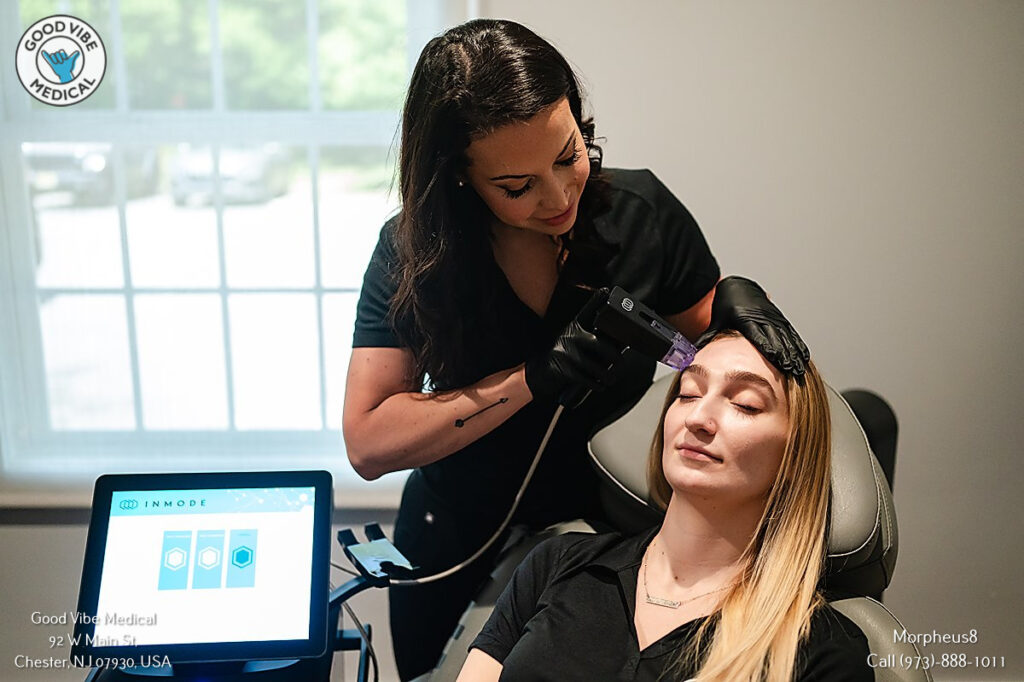
While Morpheus8 isn’t suitable during pregnancy, many effective options are available post-pregnancy to help you achieve your aesthetic goals. Schedule a consultation with a board-certified dermatologist or plastic surgeon who offers Morpheus8.
An experienced provider can review your medical history, evaluate your skin, and create a customized treatment plan. They can also walk you through all of your options, from Morpheus8 to threads and lasers, so you can determine the best solution for your needs.
With an expert’s guidance, you can safely and effectively address changes to your appearance after pregnancy and childbirth. Trust your skin only to a provider with extensive experience performing Morpheus8 and other leading-edge skin rejuvenation procedures. They can help you look and feel your absolute best during this exciting new chapter of motherhood.


